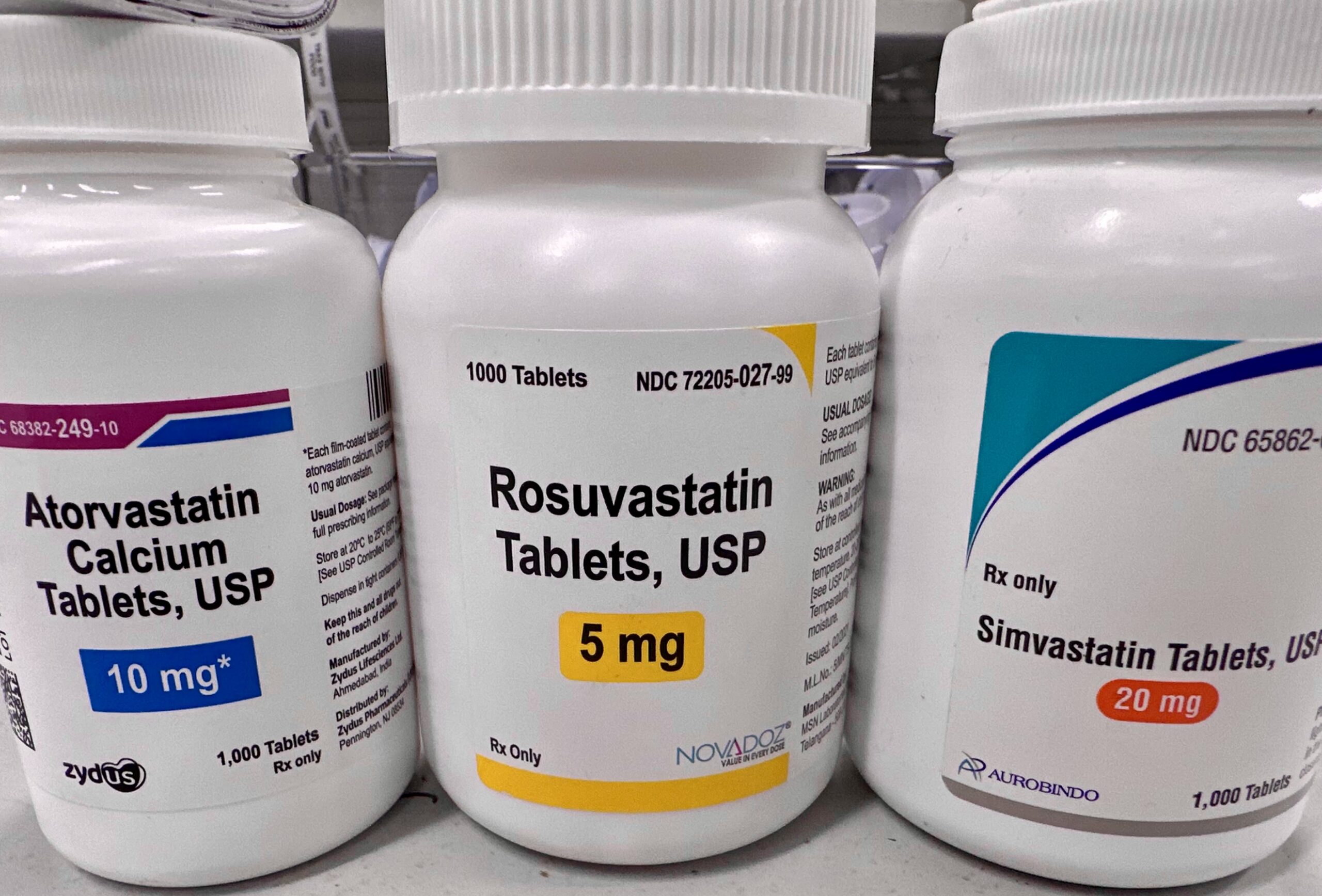As promised, a little bonus this week, let’s talk about cholesterol lowering medications! There are two main medication classes I will focus on. I will also touch on adjunct and triglyceride focused meds. There are ongoing clinical trials looking at cholesterol lowering therapies targeting apolipoproteins. For now, LDL and triglycerides are the main targets.
- Statins– These medications work to lower cholesterol by HMG-CoA reductase inhibition (in other words, they “prevent the production of cholesterol”). Benefit is seen across the board: lowering LDL and triglycerides while slightly increasing HDL.
- Recommended dosing is classified as high, moderate, and low intensity. High intensity typically lowers LDL by >50%.
- Overall, statins are well tolerated therapies. However, there are some side effects to be aware of before and during therapy. The most common being muscle pain (up to 10%). There are populations at higher risk including: female gender, elderly, those on interacting medications, liver disease, alcohol, and more. Additionally, high intensity therapy is more likely to cause myalgias (muscle pain). If myalgias occur, discuss with provider. There are other options available, such as lowering dosage, alternative statin or a different class of medication.
- There are more serious side effects that may occur but are rare and typically occur in those at-risk populations (as mentioned above). This is why monitoring, particularly when initiating therapy is important. Routine metabolic panel including liver and kidney function tests should be ordered.
- PCSK9 Inhibitors– This, relatively new, drug class works to decrease the production of LDL. They are typically reserved for those with familial hypercholesterolemia (genetic), resistant hypercholesterolemia (on maximum dose statin but still with elevated LDL and high risk), and/or cannot tolerate a statin. Of note, this is an injection every 2-4 weeks.
- May lower LDL by >50%, particularly when used in adjunct.
- Appear well tolerated. However, long term studies are lacking.

Adjunct:
- Ezetimibe- Inhibits the intestinal and biliary absorption of LDL cholesterol. Has the potential to lower LDL by up to 20%. Is well tolerated.
Triglyceride Lowering:

- Fibrates- Work by decreasing the production of triglycerides. They may cause GI upset. Avoid use in kidney and liver disease. Combining with statin therapy increases the risk of rhabdomyolysis (break down of muscle tissue).
- Omega 3 Fatty Acids- Decrease triglyceride synthesis. There is emerging evidence supporting the use in coronary artery disease. Omegas are available as an over the counter supplement or prescription (Lovaza) but ALSO in our diet. Fish, seeds, and nuts are all rich in omegas. Overall, this class is well tolerated and have minimal side effects which may include: “fishy” taste and GI upset.
I will mention bile acid sequestrants and niacin as additional cholesterol lowering therapies. However, I tend to reach for other options as mentioned above due to tolerability and efficacy.
Lindsey, PharmD, BCPS
References:
Grundy, S. M., & Stone, N. J. (2019). 2018 American Heart Association/American College of Cardiology Multisociety Guideline on the management of blood cholesterol. JAMA Cardiology, 4(5), 488. https://doi.org/10.1001/jamacardio.2019.0777

5 responses to “Let’s Talk Cholesterol Medications (continued)”
Finally something that tells us how to stay healthy from the inside out. So tired of these articles that advises us how to apply our makeup and appear ten years younger. I want to know how to feel good and be healthy.
Exactly! I am ecstatic to be able to help you and our community lead healthier lives.
Metamucil – your thoughts?
Hi Jenny! My thoughts on Metamucil… if treatment of hyperlipidemia is indicated it is not a first, nor second line option. It may work similarly to bile acid sequestrants with a more modest effect on LDL cholesterol and similar GI side effects. That being said, in a healthy person who uses Metamucil for other reasons (i.e. constipation) and tolerates it well there may be some mild benefit to cholesterol NUMBERS. I cannot comment on benefit from a cardiovascular or inflammatory standpoint. That being said, increasing soluble fiber in diet could also have a modest effect on LDL cholesterol. I do want to place emphasis on steering away from cholesterol numbers (excluding those hereditary outliers) and looking more at cardiovascular (CV) risk factors and 10 year CV risk scores. Thanks for the thought provoking question and keep them coming!
Thank you! Appreciate your insight!